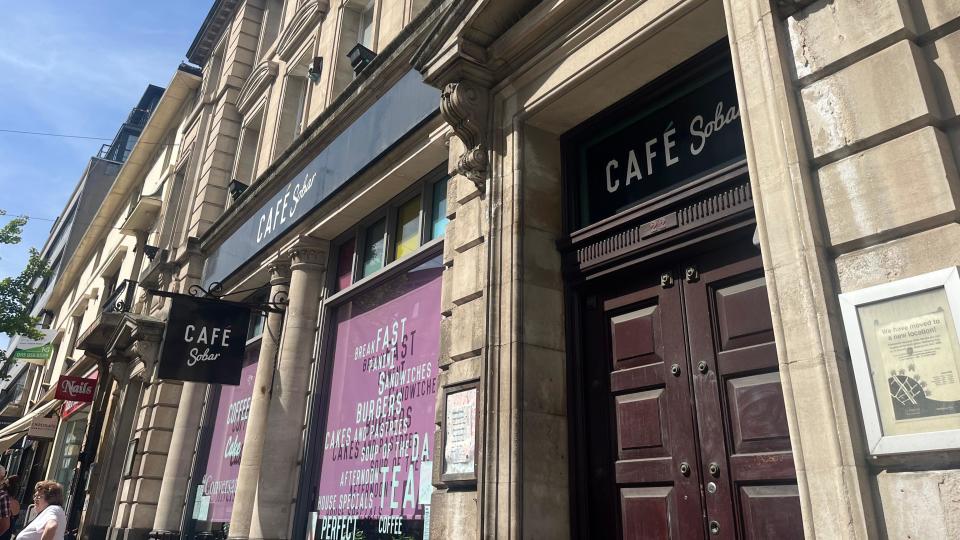A recovering gambling addict who ended up behind bars is helping to run a support service for others.
Ben Jones, 34, was jailed for three years in 2019 for stealing money from his employer to feed his addiction.
Now he is part of a service commissioned by Nottingham City Council – and he says he wishes it had been available to him.
The TimeOut project, run by recovery charity Double Impact, offers a range of help, including one-to-one holistic support and peer-led support groups.
Mr Jones said he had started gambling as an 18-year-old university student using “very small stakes” as a coping mechanism for mental health issues.
Over the course of 10 years, Mr Jones said he racked up a loss of about £1m.
‘Distant and secretive’
He told the BBC: “As the years went on, as with any addiction I guess, I needed more and more of it to get the same feeling.
“And so the money went up and up and up, and it just spiralled completely out of control.”
His dependency eventually began to affect his relationships, with Mr Jones finding himself distancing himself from friends and family.
“The biggest impact really was on my relationship with my partner,” he said.
“She never knew that I was gambling and when she found out the full extent it just kind of made sense to her.
“Because I was so distant and so secretive – not present as part of the family – she thought I was having an affair.”
He said the impact on his family was worse than his prison sentence.

Mr Jones said he lost all access to money when he was arrested, forcing him to stop gambling.
With “no formal support”, he said he went “essentially cold turkey” and had to eventually find support himself.
Later, counselling sessions he accessed helped him to get to the root causes of his addiction, which he said were “childhood trauma, depression and social anxiety”.
Leaving prison more equipped to manage his issues, Mr Jones said he wanted to support people in the same position.
Now he is working with the TimeOut project, which he describes as “one-of-a-kind”.
The scheme helps service users to focus on their strengths and things they are good at to help “channel” those into their recovery, he explained.
He added it also helped to build a community of people who are in recovery.
“I honestly wish I had something like this available to me when I was trying to stop gambling,” he said.
“It’s never too late to start recovery and it’s never too early.”
If you have been affected by any of the issues raised in this story, you can visit the BBC Action Line.
Follow BBC Nottingham on Facebook, on X, or on Instagram. Send your story ideas to [email protected] or via WhatsApp on 0808 100 2210.
Related internet links
![]()